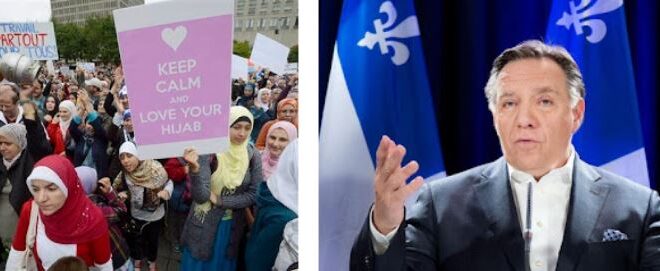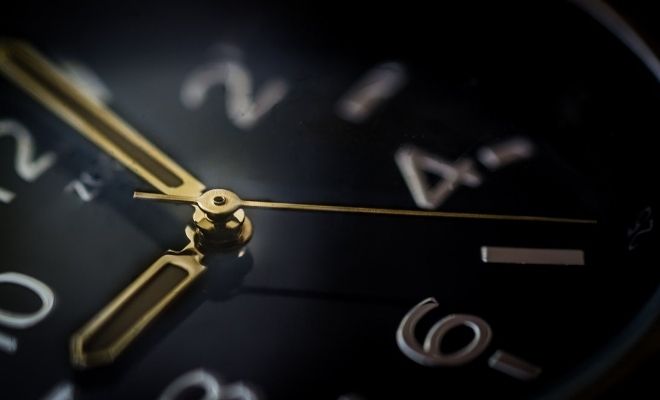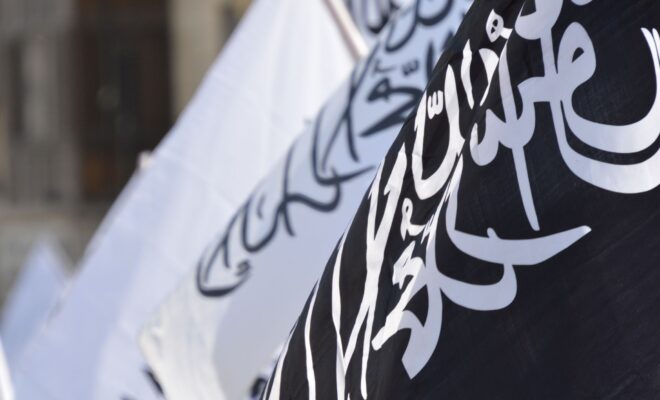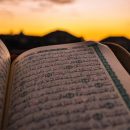Ramadan – Exemplifying the Unity of the Ummah
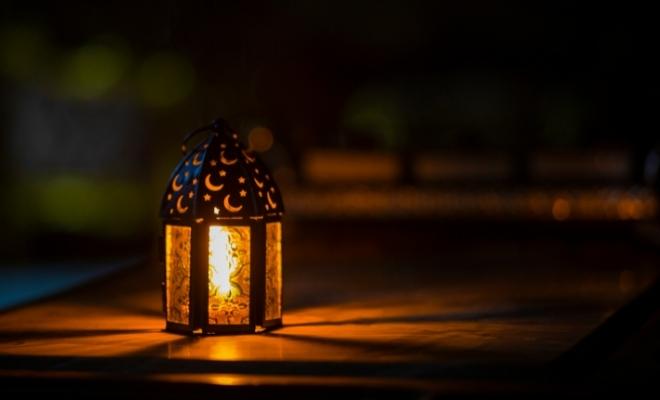
As we approach Ramadhan, we as a Muslim Community, are elated at the arrival of this blessed month.
After having to celebrate Ramadhan for the past 2 years under Covid-19 restrictions; wherein we missed the companionship of our relatives, neighbors, and friends, visiting the Masjids, praying Taraweeh together and enjoying the community atmosphere, this Ramadhan will mark a return to all that and more in shaa Allah (swt).
This is the happiness the believer experiences with the bounties of Allah (swt):
“Say in the Bounty of Allah and in his Mercy, (let the believers) Rejoice indeed it is better than (all material things) that (people) gather.” [TMQ 10:58]
Unity of the Ummah is Not Haphazard
With the excitement of going back to enjoying Ramadhan fully with our Muslim community, we as Muslims need to realize that the Ummah’s unity we see during Ramadhan is not a haphazard occurrence. Rather, it is based on the Aqeedah (Beliefs) of Islam and the great effort of our predecessors to bring forth its reality.
Ramadhan should not only be the catalyst to unite the community but also to work toward the global vision for the Ummah and achieve true unity under the Islamic System of Khilafah.
Individualism: Poison for the Ummah
The reality of the society in Canada, is that it is based on the secular Aqeedah that promotes individualism. Individualism is defined by the Merriam-Webster dictionary as “a doctrine that the interests of the individual are or ought to be ethically paramount”.
Based on this idea, we see a society where the primary purpose is to satisfy the individual’s whims and desires even at the expense of the wider community. This would mean this corrupted idea will promote the need of the individual over all over things even to the detriment to the wider society.
Hence, we see in the society the wide-spread use of pornography, brothels, drugs and alcohol as they cater to the desires of the individual. Little regard is given to the damage and destruction these vices bring to society. Hence as Muslims, when we live in a society dominated by this doctrine, the collective nature of Islam is apparent in our rituals, like praying at the Masjids, attending Jummah; fasting the month of Ramadhan.
We see a sharp contrast between us and the society we live in. However, we should realize that the doctrine of individualism has indeed crept into our Muslim community, sadly. This can be seen where there is a strong focus from our Islamic Institutions on the individual obligations like I’badaat (worship rituals) and personal aspects of the Akhlaq (behavior). However, collective concepts like political unity, protecting Muslims from foreign aggression and invasions or explaining the concept of One Ummah under the shield of the Khilafah do not garner much attention.
Furthermore, we hear little about the concept of “Enjoining the Good and Forbidding the Evil” since this Islamic concept contradicts the individualistic perspective which promotes the idea “to each his own and to focus on your mistakes, not others”.
Allah (swt) states:
“Surely Allah loves those who fight in His cause in ˹solid˺ ranks as if they were one concrete structure.” [TMQ 61:4]
Furthermore, the Prophet (saw) described the reality of this Ummah and in general, society akin to those who are riding together in a ship (not individuals on kayaks).
He said:
“The example of the person abiding by Allah’s order and restrictions in comparison to those who violate them is like the example of those persons who drew lots for their seats in a boat. Some of them got seats in the upper part, and the others in the lower. When the latter needed water, they had to go up to bring water (and that troubled the others), so they said, ‘Let us make a hole in our share of the ship (and get water) saving those who are above us from troubling them. So, if the people in the upper part left the others do what they had suggested, all the people of the ship would be destroyed, but if they prevented them, both parties would be saved.” [Bukhari]
Hence it is apparent that Individualism as a concept has no place in Islam.
The Obligation of Unity of the Ummah
Allah (swt) says:
“O you who have believed! Fasting is prescribed for you as it was prescribed for those before you, that you may become Al- Muttaqûn (people of piety) [TMQ 2:183]
When Allah (swt) says, “Oh you who have believed”; He uses the term aamanoo (with the waw of plurality) instead of the singular aamana. which means the obligation of fasting is directed to the Muslims as a collective body. Hence, though it consists of personal effort and sacrifice, it is an obligation we partake in with the whole Muslim body across the whole world.
Secondly, even when it comes to sighting the moon, the Prophet (saw) says:
“Start fasting on seeing the crescent (of Ramadhan) and give up fasting on seeing the crescent (of Shawwal), and if the sky is overcast (and you cannot see it), complete thirty days of Sha’ban.” [Bukhari].
Again, we see in Arabic the waw of plurality is used Soomoo when commanding the Muslims to fast. The scholars have derived from this command that the legitimate sighting of the moon in any part of Earth by a Muslim who fulfills the conditions of a witness is acceptable and the entire Ummah will use his testimony to begin the month and end the month.
We see the effort by the rulers in the Muslim Lands to interfere in this aspect by not adhering to the shari’ (Islamic legislative) rules when it comes to global sighting but rather use announcing Ramadhan as a political toy in their hands. We can see neighboring Muslim countries in the same geography announce the beginning of Ramadhan based on sightings within their political borders created for them by the colonialist powers!
Indeed, these secular, nationalistic states in the Muslim lands are a great barrier to the unity of the Muslims.
Local Actions Aiding the Effort for a Global Vision
We can see, that indeed in the world we live in today, local issues are tied to global issues. For example, we can see the war in Ukraine is affecting the price we pay at the pump, as well as food.
We as Muslims should realize that this interconnected world is not limited to goods only but also ideas. This means that as Muslims if we have a global vision for the Ummah; this global vision should be about how to carry forth this spiritual bond of unity Muslims exemplified in Ramadhan to a political bond where we can remove the false barriers of nation-states and unite under the Khilafah Rashida.
This can be done in Ramadhan in our iftars locally, when we meet each other, and we exemplify the Hadiths of the Prophet (saw):
“You will not enter Paradise until you have faith and you will not have faith until you love each other. Shall I show you something that, if you did, you would love each other? Spread the Salam between yourselves.” [Muslim]
‘Whoever feeds a person breaking his fast will earn the same reward as him, without anything being lessened from the reward of the fasting person’. [Tirmidhi]
Steps Towards Re-Engagement and Unity
With Ramadhan around the corner there are some practical steps we can take to unite with each other. Firstly, we need to make sure that our connection is strong with the Qur’an, realizing that indeed Allah’s (swt) Book was revealed in Ramadhan to give mankind the Guidance and all the details and clarifications on how humans should live on earth, in contrast to secularism and democracy where man is the legislator.
Allah (swt) says:
“Ramadhan is the month in which the Quran was revealed as a guide for humanity with clear proofs of guidance and the standard to distinguish between right and wrong.”[TMQ 2:185]
Understanding the Great Reward of Fasting
“He who fasts during Ramadhan with faith and seeks his reward from Allah will have his past sins forgiven; he who prays during the night in Ramadhan with faith and seeks his reward from Allah will have his past sins forgiven; and he who passes Laylut al-Qadr in prayer with faith and seeks his reward from Allah will have his past sins forgiven.” [Bukhari and Muslim]
Now that the Masjids are open again and we have returned to praying shoulder to shoulder, we need to make greater effort to establish the Salah in the Masjids. Allah (swt) says:
“In houses (Masjids) which Allah has ordered to be raised, in them His Name is remembered therein glorify Him (Allah) in the mornings and in the afternoons or the evenings. Men whom neither trade nor sale (business) diverts from the Remembrance of Allah (with heart and tongue), nor from performing As-Salât nor from giving the Zakât. They fear a Day when hearts and eyes will be overturned (out of the horror of the torment of the Day of Resurrection).” [TMQ 24:36-37]
Our Role
We have realized by welcoming this Ramadhan that indeed we are servants under Allah’s (swt) dominance and that He has the absolute control of what occurs in the universe.
Hence when we see that Allah (swt), in his glory and majesty, has given us the opportunity to return to the bounties of Ramadhan, which we may have not fully realized earlier, we need to make an additional exertion of effort to undertake actions that will please Him. Unity among us as Muslims is a goal we can work towards, by achieving true brotherhood among ourselves, by taking the practical actions that Islam commands.
In addition, we are people who have a vision to bring forth true unity of the Ummah, wherein we remove these man-made borders and unify the Muslim Ummah under a single political authority, the Khilafah Rashida.
Consider how Abu Bakr (ra) who made it his rules’ priority to stop the rebellion of the apostates and fight those who decided that paying Zakat was no longer a necessary part of Deen. He said when they refused to pay the Zakat:
“By Allah, if they withhold the rope of a camel they used to give in Zakat to Allah’s Messenger, I will fight them for it”
Let us reflect about the Khulufah and the Sultans who, under their authority, led the Ummah’s fight against the Crusader and Mongol forces to prevent them from dominating the Islamic Lands. Let us think about the Uthmani Khilafah which preserved the Sacred Lands against the onslaught of the British and the colonial powers who aimed to break up the unity of the Ummah.
Had it not been for this Khilafah system, we would not have the Ramadhan and the Deen at large preserved for us over the passage of over 1400 years since the passing of the Prophet (saw). Let us use this Ramadhan to exemplify unity locally by opening our hearts to our brothers and sisters and meeting them with glad tidings.
And let us make an impact on the global effort for true unity of the Ummah via the re-establishment of the Khilafah Rashida in the Muslim Lands so that Ramadhan will be preserved by the Help of Allah (swt) and His use of us as His servants to achieve this obligation. Let us show that indeed this Ummah is a united Ummah and the best Ummah raised for mankind.
“You are the best community ever raised for humanity—you enjoy good, forbid evil, and believe in Allah.” [TMQ 3:110]

